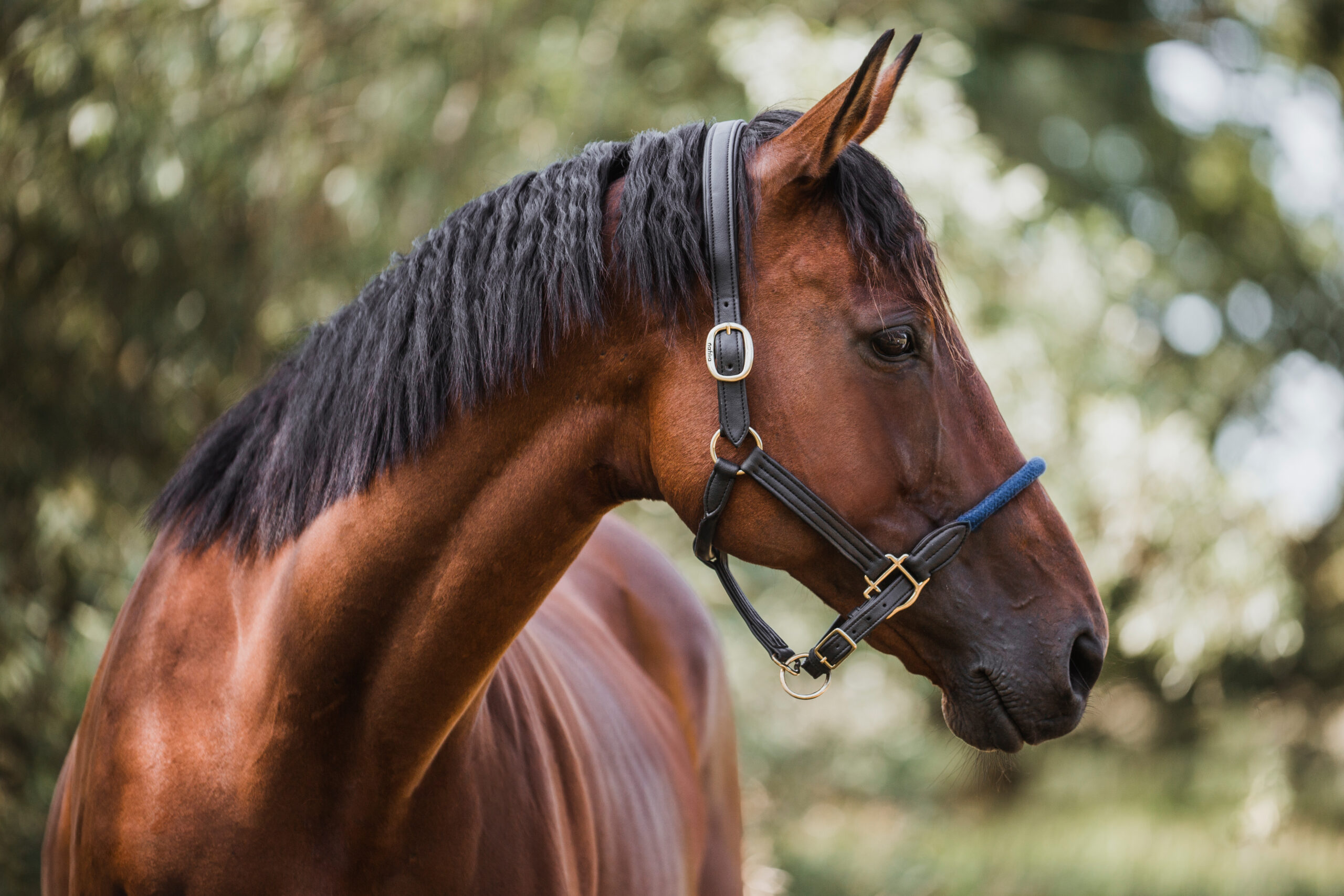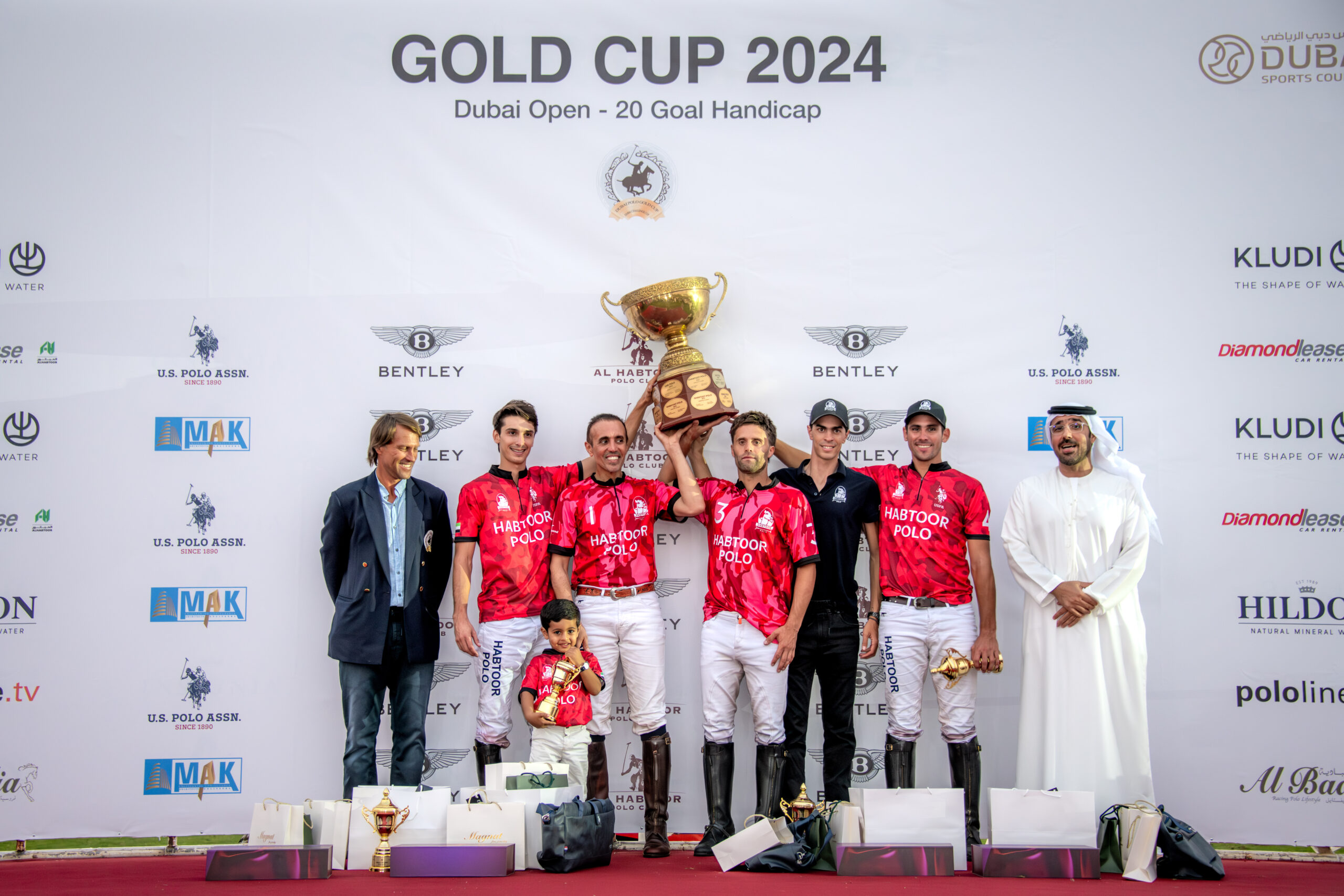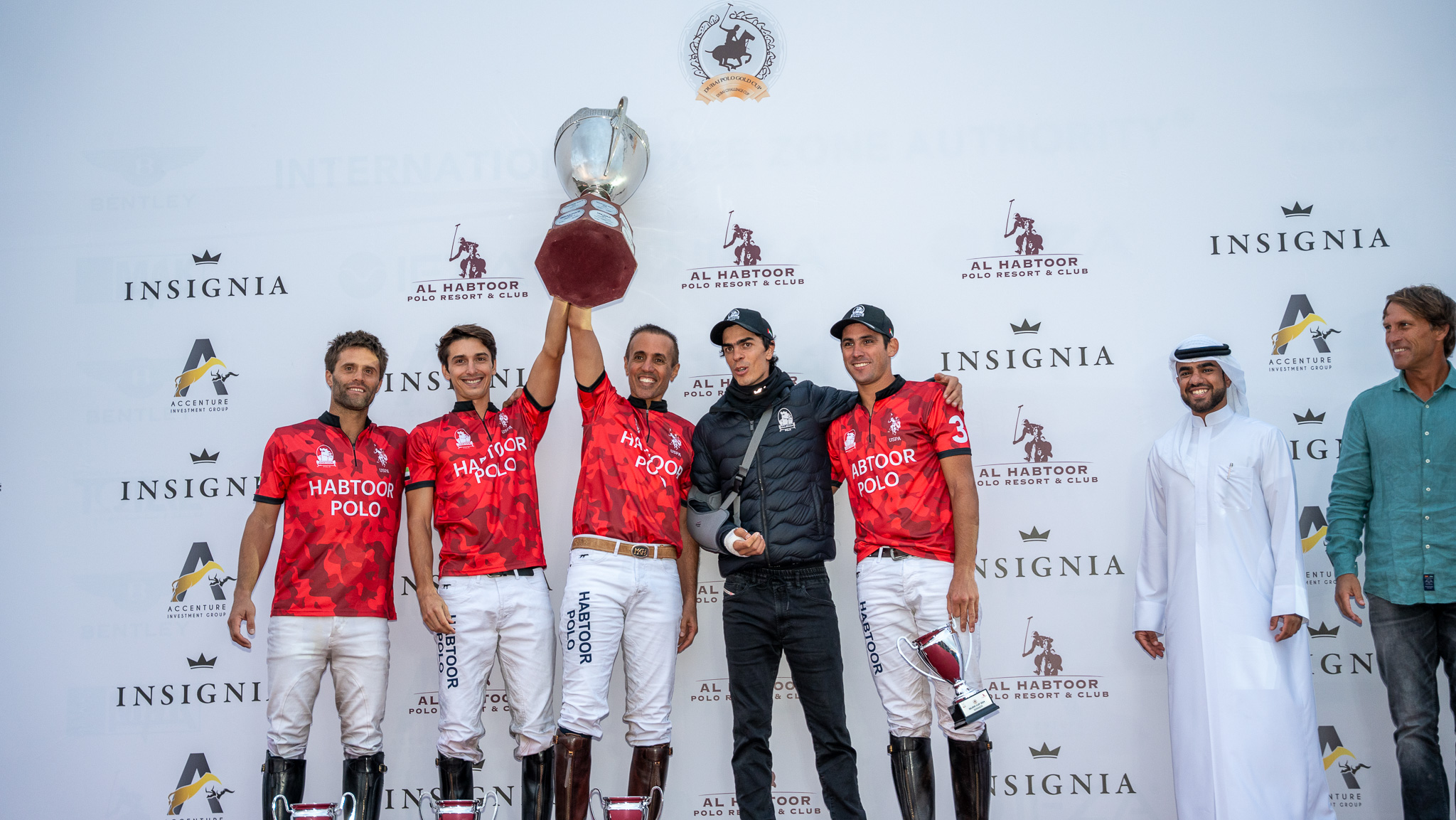
Thrilling victory: Habtoor Polo
The thrilling Gold Cup finals kicked off with Dubai Wolves...

The thrilling Gold Cup finals kicked off with Dubai Wolves...
Traditionally, the Silver Cup, held at handicap level 20, marks...
25.000 of spectators who strolled through the PoloVillage, enjoyed the...
Fashion is fast-moving, collections change with the seasons and often...
Dermatologists and cosmetic studios have been successfully offering light therapy...
Working in the United States, emerging democracies, and democracies in-conflict...
The thrilling Gold Cup finals kicked off with Dubai Wolves by CAFU securing the..
Read More25.000 of spectators who strolled through the PoloVillage, enjoyed the exclusive atmosphere and..
Read MoreFashion is fast-moving, collections change with the seasons and often even..
Read MoreDermatologists and cosmetic studios have been successfully offering light therapy as a skin treatment..
Read MoreA modern maharaja: blending tradition and progress. His Highness Sawai Padmanabh Singh, the 303rd..
Read MoreThe Rolls-Royce La Rose Noire, an extraordinary motor car, presented to the clients who..
Read More
Leather has been the standard material for riding equipment for many years. Nafilia now offers you a modern and sustainable alternative: high-quality halters and bridles made from vegan materials. Nafilias durable, timeless designs are the result of eco-friendly and social choices and are driven by passion and creativity.
All of the materials which Nafilia use come from renewable raw and recycled materials, regardless
of whether it is a biodegradable leather substitute or a sustainable fabric. Caroline Liss, founder and owner of the manufacture, wants to create the best possible products without causing unnecessary damage to the environment. Nafilia does this by taking up the challenges of sustainable development and providing materials for creating and maintaining a sustainable world. “In the age of global conservation, we are currently witnessing a change in our lifestyle. At Nafilia, the focus goes beyond the origin or aesthetics of materials. We understand their true value within a greater holistic narrative, with sustainability driving all aspects of the process — from production, application through to distribution.
Below, you can learn more about all the materials that we are working with,“ said Caroline Liss. Nafilia stands fully behind the idea of vegan and cruelty-free materials. The continued usage of leather is one of the major contributors to the prevalence of. “It is our resolve to
remain committed to the sustainability of the environment, and we seek to continue doing so. The degradation of the environment caused by the production of leather is a serious one that occurs in two different forms,” said Caroline Liss.
The first one is the factory farming practice, which has led to the deforestation of about 70% of
the Amazon rainforest over the last half-century to supply food for billions of animals around the
world. This practice resulted in the production of millions of tonnes of waste in a solid and gaseous
state, which degrades the ground, water supply, and the atmosphere alike. The second form of
environmental degradation results from the preparation of leather, a process that includes the production and emission of dangerous toxins and pollutants into the air. As such, people who live and work around the tanneries where leather is prepared face several health issues, part of which is cancer that results in the death of many people.
In a bid to bring this realization to the consciousness of the public concerning the harm and dangers that the production of leather caused to animals, humans, and the environment, Nafilia takes it upon itself to lead by example and change the mindset of the public to effect a positive
future for the economy and environment.
More about Nafilia: www.nafilia.com
PIÑATEX®, an innovative material made from waste pineapple leaf fibre, a by-product of existing agriculture. As the second most consumed fruit in the world, pineapples are harvested by chopping the fruit from its base of leaves. Typically, those leaves have no value and are burned or left to break down. Instead, Ananas Anam, the company that creates Pi.atex®, pays pineapple farmers in the Philippines for the leaves, generating an additional source of income for these farming communities
DESSERTO®, a leather-like fabric from the nopal cactus, which was developed in 2019 by the Mexican startup, Desserto®. The nopal cactus is used in Mexican cosmetics as well as in Mexican cuisine. It needs little water and is a very sustainable material due to its regional distribution. For the production of the vegetative leather, Desserto® applies the nopal fibers to cotton.
VEGEA, an innovative material characterized by the high content of vegetal, renewable, and recycled raw materials: For example, grape leftovers from winemaking, vegetal oils, and natural fibers from agriculture.
APPLESKIN™ is a vegan and cruelty-free bio-based leather alternative. This natural waste product, grown for the food industry, in the region of Bolzano in Northern Italy, is used to substitute other raw materials of chemical origin in the product, lowering the emissions and consumption of energy through the entire product chain. in the region of Bolzano in Northern Italy.

The thrilling Gold Cup finals kicked off with Dubai Wolves by CAFU securing the initial

Traditionally, the Silver Cup, held at handicap level 20, marks the start of the Dubai

25.000 of spectators who strolled through the PoloVillage, enjoyed the exclusive atmosphere and soaked up
[user_registration_form id=”9713″]
Membership as a POLO & LUXURY Insider is free.
POLO & LUXURY do not share your data with third parties.
[user_registration_my_account redirect_url=”my-account”]